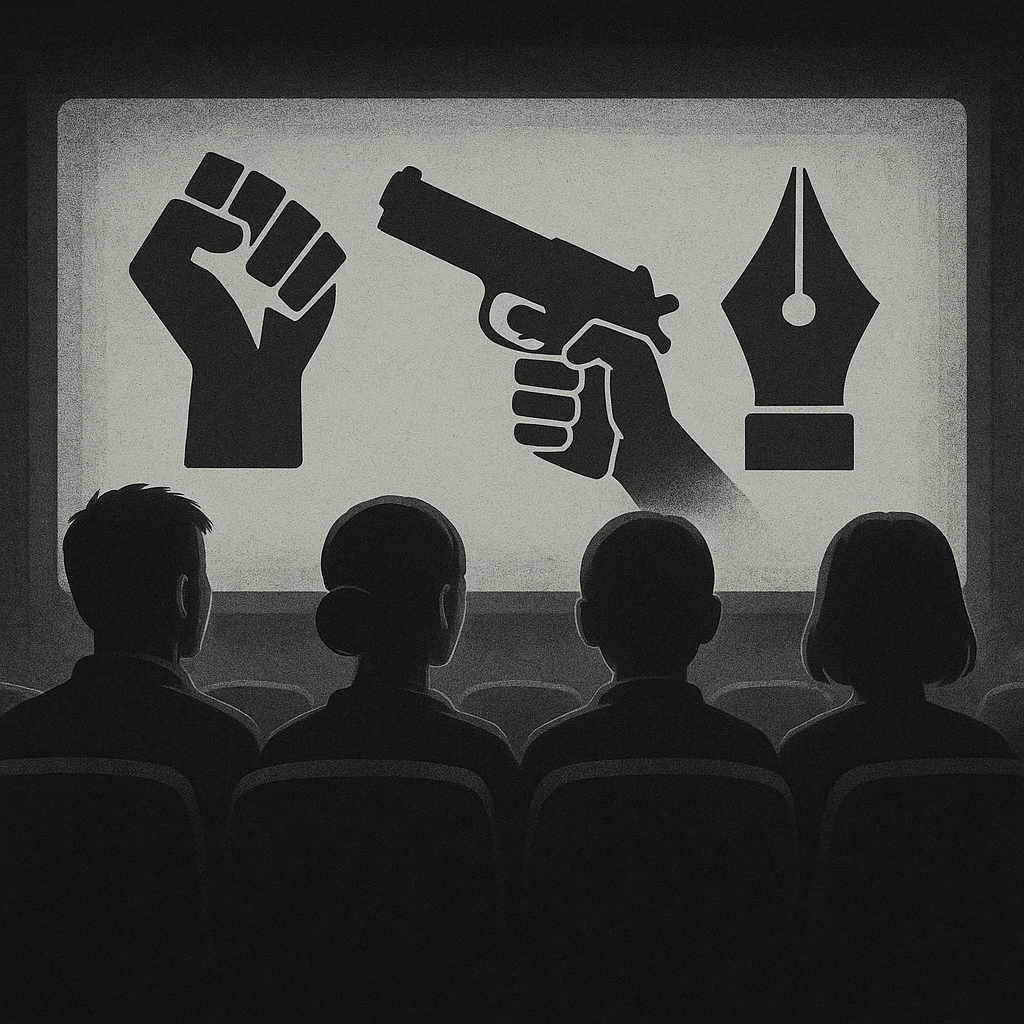🎭 The Collapse of Storytelling
Characters have been reduced to archetypes: the good, the evil, the victim, the nationalist, the Other. We don’t flesh people out anymore—we flatten them. We’ve trained audiences to respond to visual and emotional triggers, not to invest in complexity. And when the market demands outrage, storytellers—filmmakers, writers, influencers—begin to supply it on demand. The result? Art that is not cathartic, but performative. Not liberating, but pacifying.
📺 When Performance Becomes Politics
Political discourse has become indistinguishable from entertainment. Leaders are chosen for how well they provoke, not how well they govern. Speeches are edited like trailers. Debates are rigged spectacles. Press conferences are monologues delivered to carefully curated audiences. Opposition isn’t engaged—it’s vilified.We are constantly distracted. New enemies are manufactured to keep us emotionally invested in the irrelevant.
🧠 The Slow Criminalisation of Thinking
Critical thinking is now treated like rebellion. In schools, it’s discouraged. In offices, it’s inconvenient. In public, it’s dangerous. We have created systems that reward conformity and penalise curiosity.The cost? Innovation suffocates.We speak proudly of Indian startups going global, but few pause to ask: why do so many succeed abroad, not here? Why do the best minds leave or pivot away from public challenges? The answer isn’t talent—it’s oxygen. There’s no breathing room for original thought when bureaucracy, fear, and gatekeeping choke every ambitious idea.The country doesn’t need more coders. It needs more imagination. But we can’t code our way out of cultural rot.
🪞 We’re Numb, Not Apathetic
It would be easy to say people don’t care anymore—but that’s not true. We care too much, too often, and about too many things. But our caring is scattered, reactive, and weaponised. We feel outrage, but not grief. We feel tribal loyalty, but not solidarity. We feel attacked, but not reflective.We’re not apathetic—we’re overwhelmed. And in that overwhelm, the only way to cope is to scroll. To keep moving. To stop feeling deeply.That numbness is not passive—it’s adaptive. And it’s exactly what power relies on to function unchallenged.
🤐 The Disappearance of Dissent
It is no longer socially or economically safe to dissent—unless your dissent is performative or perfectly on-brand. Real dissent—the kind that challenges power structures, asks uncomfortable questions, or makes people think—has been quietly suffocated.The consequences aren’t immediate. They’re slow, invisible. A self-censoring journalist here. A resigned bureaucrat there. A student choosing silence over expulsion. A startup founder diluting their vision to fit a funder’s ideology. An artist who no longer paints the truth they see.The chilling effect doesn’t announce itself. It just expands, day by day.
📜 Why This Space Exists
This is not a political blog. This is a record of erosion. A quiet archive of the ways we’ve lost our appetite for complexity and our tolerance for contradiction.It is a refusal to let numbness win.You won’t find breaking news here. You won’t find trending hashtags. You will find thoughts that sit with you longer than they should. Questions that don’t want to be solved—just acknowledged. Fragments from a mind that’s tired, but not yet broken.If you’re still feeling—through the scroll, through the smog—you’re not alone.
“In a decaying society, art, if it is truthful, must also reflect decay.”
– Ernst Fischer
Quiet Resistance is not loud. It doesn’t go viral. It doesn’t scream. But it sees. And remembering what we see, what we feel, what we fear to name—that’s where real dissent begins. Welcome. Stay thinking.

